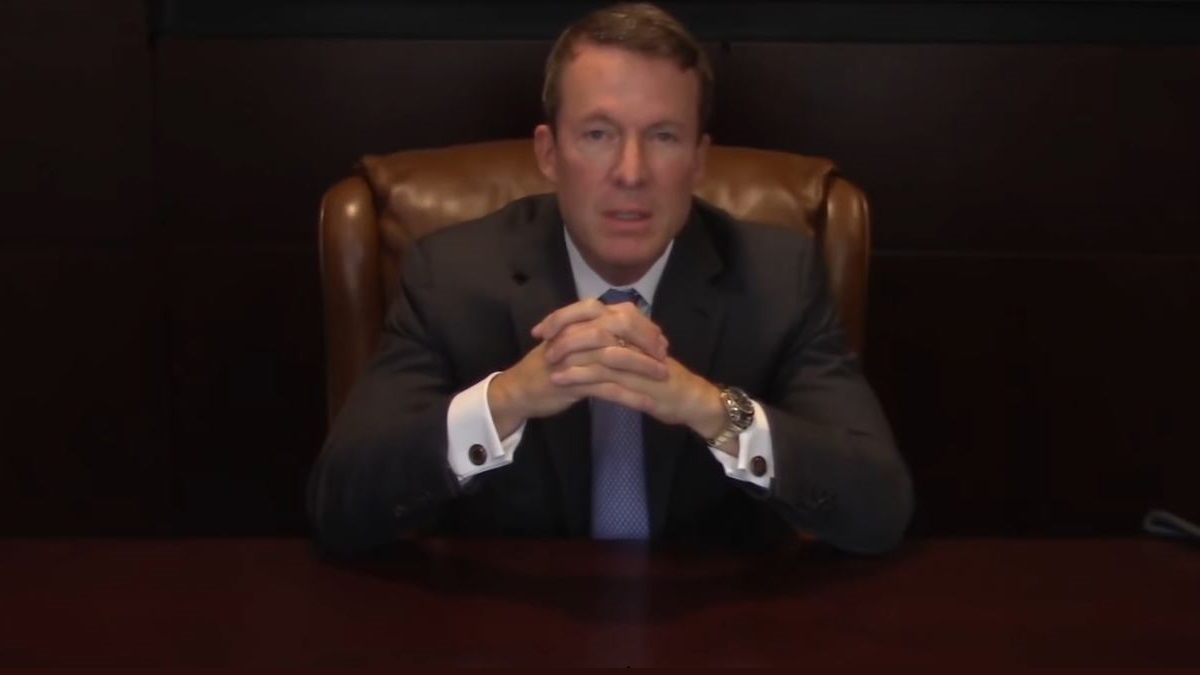‘Catastrophic Loss Event’—imagine getting an email from your investment banker with that headline. Safe to assume, even before opening and reading that email, that it is not going to be a good day for you.
But then, soon enough, you also find a cute little video made by the hedge fund manager who lost your life savings (and also put you in a little debt on top, more on that later). You hear from him that they often talked about you in the office, referring to you ‘as the biggest hockey fan in the world’ and the manager always wanted to watch a game of hockey with you at an arena. Evidently, you are not sure when you will be able to afford tickets to a hockey game again, but it still puts a smile on your face that your hedge fund manager (who, as we wrote, just lost all your savings and put you in some debt) was that fond of you. In fact, he had always considered you as family, as he said in the video.
All of the events described above actually took place, back in November 2018—except for the smiles of the affected clients, of course.
The infamous Catastrophic Loss Event email was sent by OptionSellers.com, a small hedge fund managed by a man named James Cordier. He really did record such a video and sent it out to his clients after the fund’s blow-up. Many even in the finance industry thought it was an online parody video when they first saw it.
But no, Mr Cordier is not that great of an actor, he was really nearly in tears, and was addressing actual clients of a real defunct fund. Thankfully, the video survived thanks to a third-party upload, so we’ll always have evidence of its existence.
OptionSellers Fund Destruction
OptionSellers Fund Destruction
What Went Wrong with OptionSellers.com?
As the name suggests, Cordier’s fund specialized in the investment strategy of selling options. He had 290 accounts under him at the time of the blow-up, and managed around $150 million of total investment.
An option is a contract to buy or sell 100 shares of an underlying stock at a certain price (the strike price) by a certain date (the expiry date). The buyer pays a risk premium for the seller for the contract.
Here’s an example: let’s say Hungarian Conservative is a publicly traded company, currently trading at $60 per share. An option seller could sell a HuCon call option with a $100 strike price with a 9 June expiry date, for $2. If the stock does not reach $100 by the expiry date, the contract becomes void, the underlying stocks are not sold, and the seller pockets the risk premium.
If the stock does reach $100 dollars, the option is exercised and the buyer pays for the stock at the strike price. The seller still gets to keep the risk premium. Evidently, if you are the option buyer, you are hoping that the underlying stock price goes well above the strike price, and thus you can buy them below market price—that is why you are paying the risk premium.
Selling options is actually not a particularly risky investment strategy. You can only have unrealized losses, if you are forced to sell your stock below market price—that is, if you actually own the stock that you are selling options for, which you do not have to.
An option call is ‘covered’ if the seller actually owns the required amount of underlying stock. However, ‘naked’ calls are also legal, which is when someone sells options for stocks that they do not own. You can sell options at a much larger volume for a lot more profit then, but you also increase your risk to dangerous levels.
Because if the stock hits the strike price by the expiry date, you still have to hold up your end of the bargain and sell the buyer their due stocks. So, you have to buy them at market price and sell them at the strike price, which may be much, much lower.
As you can probably guess by now, Cordier’s OptionSellers.com hedge fund was dealing with naked options.
They were selling cheap options with very high strike prices that were very unlikely to ever be in the money, and thus be exercized. However, they did so in the commodities market—namely selling options for crude oil and natural gas—which is a lot more volatile than the stock market.
And suddenly, in November 2018, natural gas prices rose over 70 per cent in one week, going from $2.80 to $4.80 MMBtu. Cordier’s hedge fund was now on the hook for a lot of natural gas stock they never owned, legally obliged to sell to their buyers below market price.
Just how much exactly? According to court filings, Cordier was seeking to collect $35.3 million from his 290 clients—after he informed them that he had lost all the money they had invested with him…
That is around $120,000 per client on average. That is not a very nice thing to do to his ‘family’ that he so dearly loved.
Where Is James Cordier Now?
You can rest assured that Mr Cordier is still trading options to this day—after all, he lost his clients’ money, not his own. He is the CEO of the Tampa, Florida-based investment firm Alternative Options. OptionSellers.com is noticeably missing from his resume on Linkedin, however.
Related articles:







